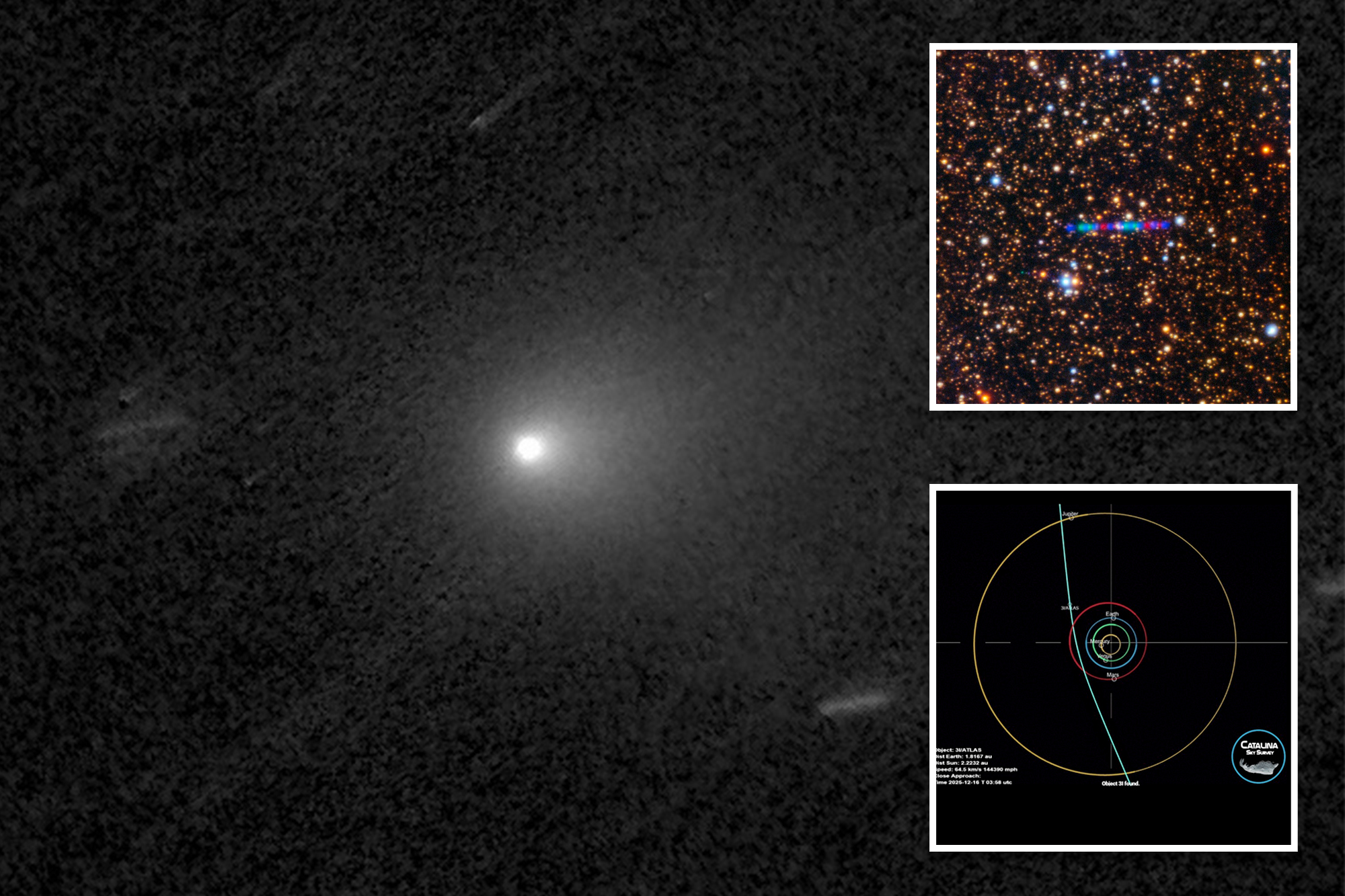BREAKING: A groundbreaking report from Harvard scientists suggests that a newly discovered interstellar object, the size of Manhattan, may not just be a comet but could potentially be an alien probe. The object, named 31/ATLAS, zoomed through our solar system at an astonishing 140,000 miles per hour and was identified by NASA on July 1 using the ATLAS telescope in Chile.
The implications of this discovery are staggering. Harvard astrophysicist Avi Loeb and his colleagues argue that 31/ATLAS may represent an intelligently directed craft, possibly observing Earth with unknown intentions. In their paper, published on July 17, they raise the possibility that the object could be a technological artifact with two potential motives: benign or malign.
The paper outlines several anomalous characteristics of 31/ATLAS that challenge its classification as a comet. One of the most intriguing observations is its “significant ‘non-gravitational’ acceleration,” despite the lack of typical cometary outgassing. Loeb highlights that 31/ATLAS approaches key planets such as Venus, Mars, and Jupiter with a probability of less than 0.005%, suggesting a calculated trajectory.
Loeb explains that the object’s low retrograde tilt complicates any attempts by humanity to intercept it. This tilt allows 31/ATLAS to access our planet while remaining challenging for interception efforts. The researchers speculate that the object could be gathering astrometric measurements to determine the orbits and masses of the Solar System planets, potentially preparing for an optimal approach strategy.
As if adding to the mystery, 31/ATLAS will make its closest approach to the Sun on October 29, a date when it will be obscured from Earth’s view. This timing raises alarm bells about what the object could be observing during its journey.
The researchers invoke the “Dark Forest” hypothesis in their analysis, suggesting that if intelligent life exists elsewhere, it may view humans as a potential threat. This theory, originating from the 2008 novel “The Dark Forest” by Cixin Liu, posits that advanced civilizations may choose to remain silent to avoid detection, directly addressing the Fermi Paradox concerning the apparent silence of extraterrestrial intelligence.
As the scientific community assesses these claims, the urgency of the findings cannot be overstated. The possibility that we are being observed by an intelligent entity challenges our understanding of our place in the universe. The implications for humanity, both in terms of potential contact and the existential threat posed by extraterrestrial life, are profound.
Stay tuned for more updates as scientists continue to analyze the data surrounding 31/ATLAS and the implications of its journey through our solar system. This developing story could redefine our understanding of life beyond Earth.
